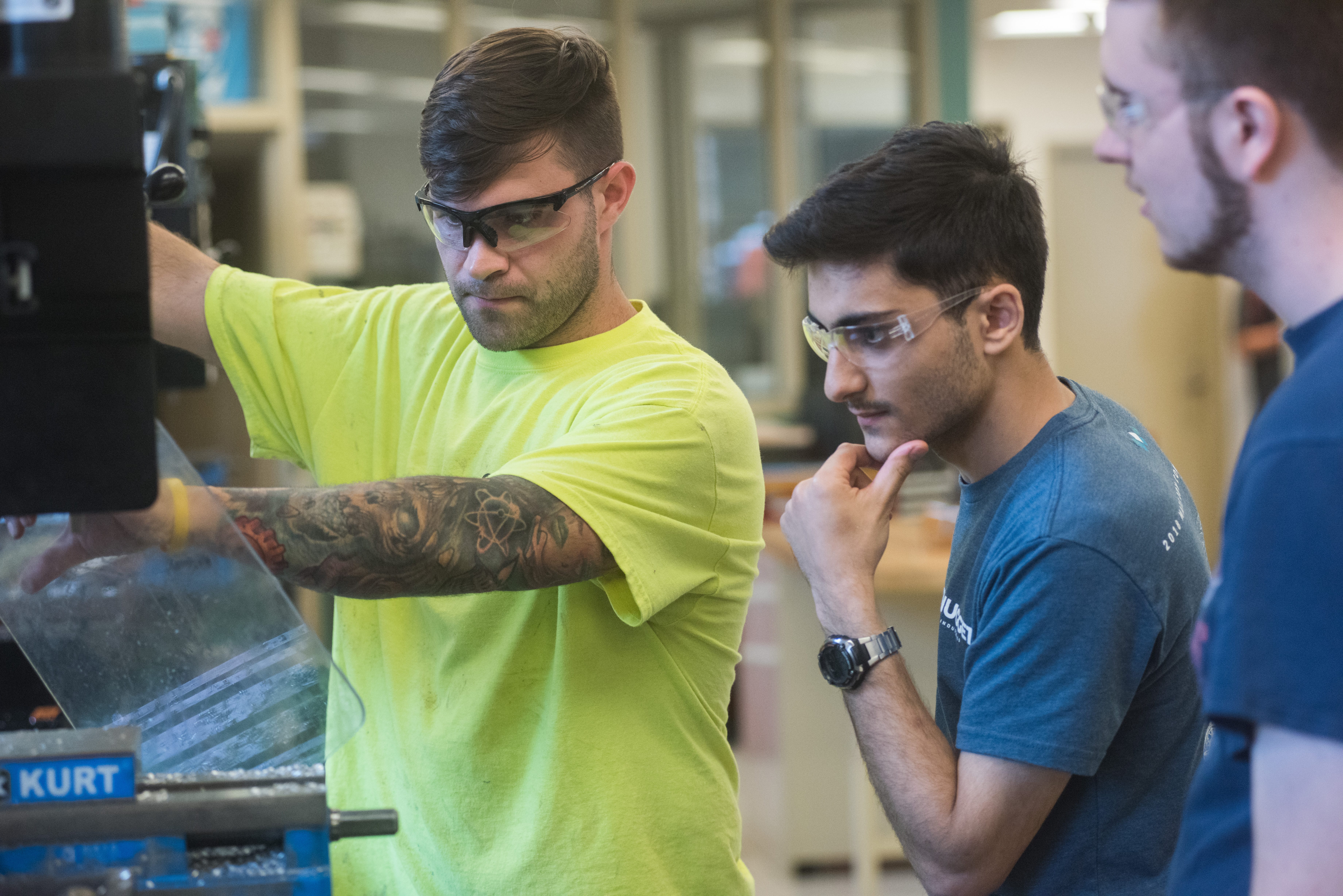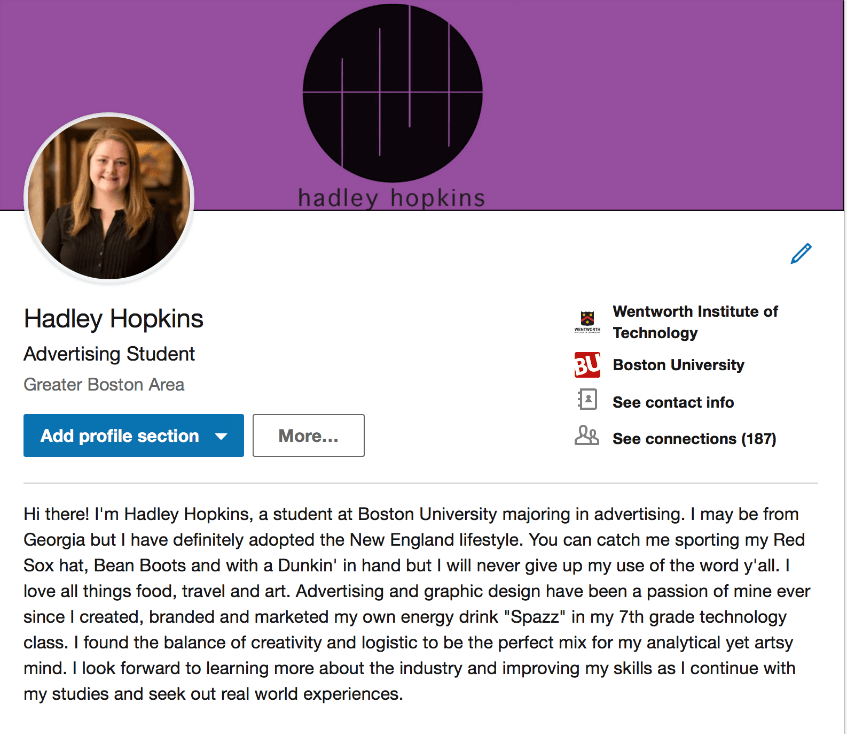By Ria Kalinowski
When applying to full-time positions outside of WITworks, seniors and alumni need to tailor their resumes to each position they apply for to get their application past the Applicant Tracking System and into the hands of a human. Using a professional summary is a quick and easy way to do that!
What is an Applicant Tracking System (ATS)?
Almost every large company and many smaller companies use ATS software to scan, sort, and filter applicant resumes. Applicants are then ranked according to how they match the key words that employers are looking for. Customizing your resume is key in order to get your resume seen.
Basic tips for beating an ATS
- Keep formatting simple so the ATS can more easily scan your resume and match your skills with the correct dates.
- Use standard headings such as “Education” and “Experience” so the ATS isn’t confused.
- Avoid using tables, headers, and columns as these can cause errors within the ATS.
- A PDF file is not compatible with all types of ATS software. Read the directions carefully when submitting your resume and unless “PDF” is listed among the file types accepted, stick to a Word document or plain-text file.
- Use a Professional Summary as an additional way to include those key words employers are looking for and a quick way to tailor each resume you submit.
How to Write a Professional Summary
- Where does it go:
- Include your professional summary directly below your contact information so this is the first section employers see.
- What does it look like:
- Name your professional summary the title of the position you are applying for as long as it accurately represents your skills and experience or check out the summaries below for additional ideas.
- Keep it brief! Limit your summary to 3-5 statements and avoid using “I” and other personal pronouns.
- Use several statements in a paragraph form or a bulleted list.
- What to include:
- Optimize your keywords to be found! Include the job title you are applying for and the technical and transferable skills you possess that they ask for in the job description. Pay careful attention to words that are repeated often and try to include those in your summary and/or elsewhere on your resume.
- Highlight your skills and experience that are directly related to the position that you are applying for.
- Include major accomplishments and use numbers whenever possible.
- Look at the positions you are applying for and use language directly from those job descriptions when appropriate.
Additional ATS Resources:
How the Top 5 Applicant Tracking Systems Read Resumes Differently.
8 Things You Need to Know About Applicant Tracking Systems.
Sample Resume Summaries:
DevOps ENGINEER
Bachelor’s Degree in Computer Engineering with 6 months work experience in building and testing video platforms. Strong programming skills in C, Java, and Python. Comprehensive debugging and troubleshooting skills. Proven ability to engineer complex solutions for scaling environments.
ELECTRICAL ENGINEER
Electrical Engineering graduate with a year of industry experience. Strong interest in power systems with demonstrated knowledge of building science and energy efficiency. Strengths include use of SolidWorks and AutoCAD when reading and editing project drawings. Proven ability to collaborate with multidisciplinary teams.
PROJECT MANAGER
Business Management student with 9 months of print project management experience and knowledge of web production obtained from internships in educational publishing and consumer packaging. Creative problem solver who has consistently completed projects on time and within budget. Employed a customer-focused approach which increased repeat business by 15% over the prior cycle. Available September 2019.
MECHANICAL ENGINEER
Results oriented mechanical engineer focused on design, prototyping, analysis, testing, documentation, and manufacturing support. Experienced in the fabrication of mechanical components, complex systems and mechanical devices. Strengths include:
- SolidWorks for mechanical design
- AutoCAD for process design
- Rapid prototyping
- New product development and introduction
- Lean manufacturing
IT SPECIALIST
Wentworth Institute of Technology student offering a strong foundation in IT combined with 6 months of internship experience. Proven track record of providing Tier 1 & 2 support both in-person and remotely using ServiceNow. Skilled in explaining technical issues to non-technical end users. Experience with migration projects for both Macs and Windows. Creative troubleshooter with a customer service mindset.
BIOMEDICAL ENGINEER
Class of 2019 with minors in Manufacturing and Biology. More than a year of experience in the medical device industry. Strong interest in manufacturing and working knowledge of new and upcoming medical devices such as orthopedics, implants, and prosthetics.
CONSTRUCTION PROJECT MANAGER
Results-driven construction and project manager with 8 months of management experience and 1+ years of experience in the construction industry. Skilled at comprehending and interpreting architectural and civil blueprint plans especially using Bluebeam. Experience with, or exposure to, various construction management situations including scheduling, contracts, problem reporting and resolution, management of subcontractors and site safety.
Spring CO-OP + CAREER Fair is Tuesday, March 19th! For events leading up to Career Fair, check out our Prep Week Schedule.
To make an appointment with your Co-op + Career Advisor call the front desk at 617 989 4101 or stop by during spring 2019 Drop-In Hours: Monday, Tuedsday, and Wednesday 1:30pm – 4:00pm while classes are in session.







